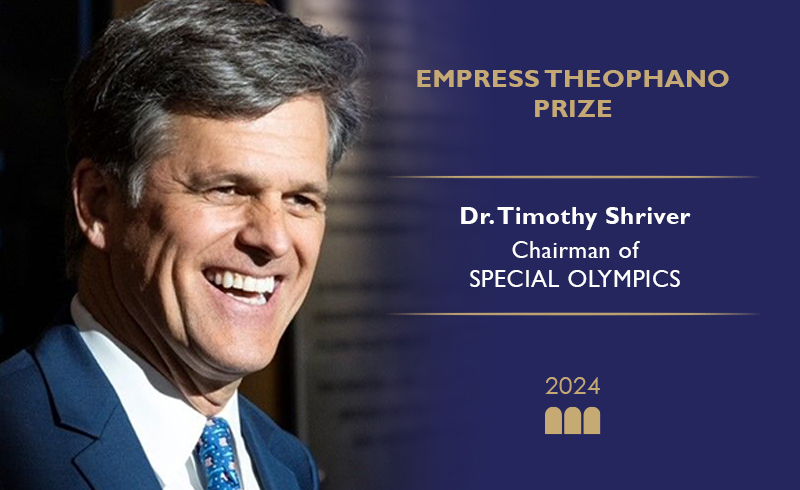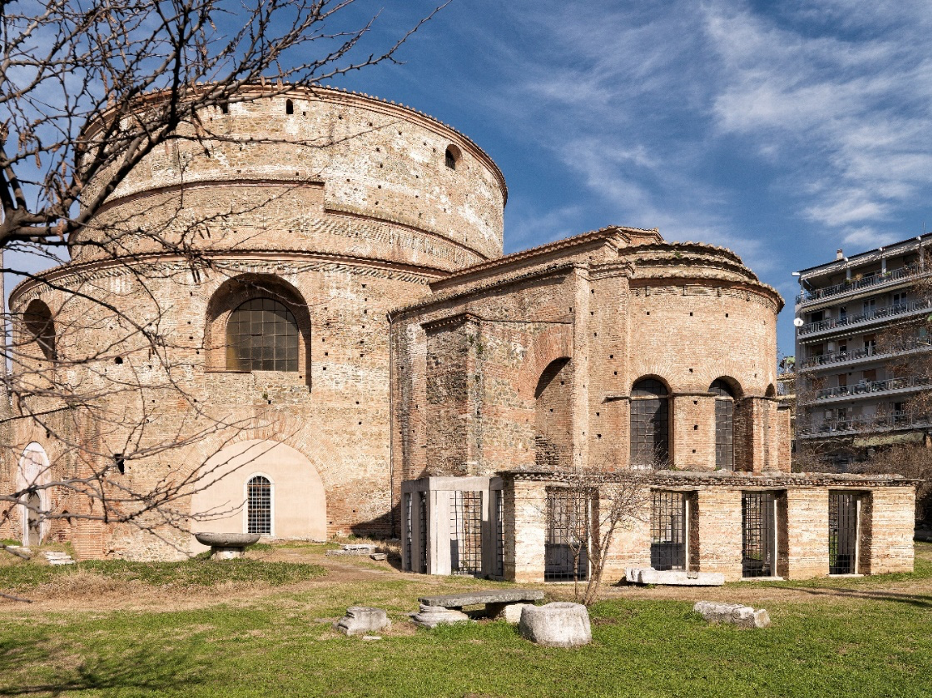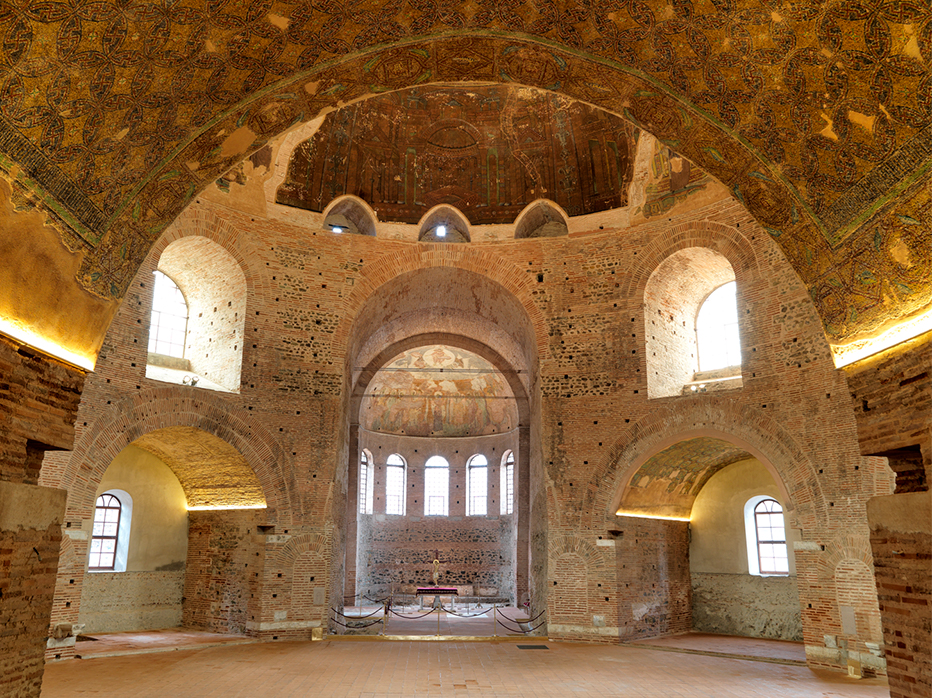Special Olympics, founded in 1968 by Eunice Kennedy Shriver, has today won the prestigious Empress Theophano Prize.
Awarded each year to honour an exceptional contribution to human betterment, the coveted prize will be presented to Dr. Timothy Shriver, Chairman of Special Olympics, at a Ceremony on 23 October in the 2000 year-old Rotunda of Thessaloniki, Greece
© Studio 8 Photos, Efi Panagoula
You may watch the Award Ceremony (Wednesday 23rd October 2024 | 17:30 CET, 18:30 EET) HERE

Tim Shriver, Chairman of Special Olympics, said today: “On behalf of the four million Special Olympics athletes we serve every day around the world, it is truly one of my greatest honors to accept the Empress Theophano Prize. Disability rights are human rights. Everyone has a right to participate in society. Everyone has gifts to celebrate. […] Our mission is bigger than the World Games we put on, bigger than the millions of volunteers and family members who give their time to make the possible a daily reality for one of the most marginalized populations in the world. Our mission is to create a truly unified generation that, together, through programming in sport, health, education, and community building, harnesses the power of our movement and amplifies our athletes’ voices to reach new audiences around the world with their powerful messages of dignity, resilience, and inclusion.”
Stavros Andreadis, Chairman of the Governing Council of the Theophano Foundation said: “In a world of diversity and adversities, it is fundamental to highlight the contribution of institutions such as Special Olympics, not only as a means for building more inclusive societies, but also as a benchmark for the power of human beings to overcome hardship and become an example of the joy of life.”
Herman Van Rompuy, former President of the EU’s European Council and Chairman of the Advisory Council of the Theophano Foundation said: “Special Olympics embodies the key values of the Theophano Prize: generosity, human dignity and togetherness across borders. It’s ‘special but it’s great.”
The Empress Theophano Prize, a non-pecuniary award conferred each year after deliberation between the Advisory and Governing Councils of the Theophano Foundation, is designed to highlight those persons or organisations in Europe and beyond who embody European and universal values. Special Olympics shows the power of sport to overcome adversity and promote inclusion. Today’s Theophano Foundation prize is the fifth such award. Previous winners were the EU’s Erasmus student exchange programme, the inventors of the life-saving Covid vaccine, Dr Uğur Şahin and Dr Özlem Türeci, the globally respected pianist and maestro Daniel Barenboim for his West-Eastern Divan Orchestra, and the United Nations, in the person of António Gutteres, UN Secretary General, for its contribution to world peace and international cooperation.
The city of Thessaloniki, the location of the Theophano Foundation, was the Byzantine Empire’s second city and, while it has suffered tragedy in its long history, it has since antiquity been a meeting place for people of all backgrounds and creeds and a wellspring of inspiration for Western Europe.
About Special Olympics
Founded in 1968, Special Olympics is a global movement to end discrimination against people with intellectual disabilities. We foster acceptance of all people through the power of sport and programming in education, health and leadership. With nearly four million athletes and Unified Sports® partners and one million coaches and volunteers in more than 170 countries, Special Olympics delivers more than 30 Olympic-type sports and nearly 50,000 games and competitions every year. Engage with us on: X, Facebook, YouTube, Instagram, TikTok, and LinkedIn. Learn more at SpecialOlympics.org.
About the Theophano Foundation
The purpose of the Theophano Foundation, launched in 2019, is to promote those human values which characterise Europe and to honour exceptional examples of these values in action. In doing so, its purpose is also to underline and build upon the powerful historical resonance of Eastern European culture in shaping and living these values, be it in statecraft, education, religious tolerance, scientific progress or artistic and sporting endeavour.
Media enquiries
Andrew Fielding, Senior Advisor, Theophano Foundation: andrew.fielding@skynet.be or +32 478 915157
Vicky Papadimitriou, Project Coordinator, Theophano Foundation: info@theophano.eu or +30 693 722 9858
MORE INFORMATION: www.theophano.eu
The Empress Theophano Prize was created in order to reward individuals or organizations which have made, or are making, an outstanding contribution to building bridges among people, nations, ideologies and to improving mutual understanding of our diverse roots.
Since the establishment of the Prize in 2019, this initiative expresses, in the most noble way, the imperative and urgent need for contemporary cooperation. In 2020 the Prize, focused on Education, was awarded to the Erasmus Programme of the European Union. It was received personally by European Commission President Ursula von der Leyen. In 2021 the focus was on Science: Dr. Uğur Şahin and Dr. Özlem Türeci, the scientist couple who developed the first vaccine against the corona virus, were the recipients of the award for their dedication to the common good. In 2022, the Prize highlighted the key role of Art as a common ground for mutual understanding and was awarded to the world-renowned conductor Daniel Barenboim and his initiative of West-Eastern Divan Orchestra, a highly symbolic project for building bridges between peoples. In 2023 it was awarded to the United Nations and the UN Secretary-General, António Gutteres, focusing on the humanitarian role of multilateral leadership.
The Prize is awarded every year in the historic Rotunda in Thessaloniki, a landmark monument and heritage site signifying the multicultural influences of Europe: Roman, Byzantine, Orthodox, Ottoman, and Greek.
SPONSOR

OFFICIAL AIR CARRIER

WITH THE SUPPORT OF:

ROUND TABLE DISCUSSION SPONSOR

WITH THE KIND SUPPORT OF

The Advisory Council
Chairman
Herman Van Rompuy
President Emeritus of the European Council
Minister of State of Belgium (BE)
Members
Mary McAleese
Former President of Ireland | Professor of Children, Religion and Law, University Glasgow (IRL)
Chantal Colleu-Dumond
Directrice du Domaine de Chaumont-sur-Loire (F)
Nikiforos Diamandouros
Former European Ombudsman (GR)
Tarja Halonen
Former President of Finland (FI)
Sonja Licht
Sociologist, Former Chair of Open Society Foundation (RS)
Alessandra Mignolli
Professor, Sapienza University, Rome (I)
Sigrid Müller
Professor, University of Vienna (A)
Camilla Nothhaft
Professor, Lund University (S)
Maria Luisa Poncela
Former Secretary of State for Trade, Secretary General for Science and Innovation of Spain (ES)
Michel Praet
Vice-President, Museum of European History (BE)
Georges Prevelakis
Professor Emeritus, Paris-Sorbonne University (FR)
Sir Ivan Rogers
Former UK Ambassador to the EU (UK)
Eveline Riemen-van der Ham
Vice-President Nexus Institute (NL)
Vassilios Skouris
Former President, European Court of Justice of the EU (GR)
Rita Süssmuth
Former President of the German Parliament (DE)
Panos Tzonos
Professor Emeritus, Aristotle University of Thessaloniki (GR)
The Governing Council
Chairman
Stavros Andreadis
Honorary President, Sani/Ikos Group
Chairman, Cultural Society of Entrepreneurs of Northern Greece (GR)
Members
Nikolaos Efthymiadis
Chairman, EFTHYMIADIS Agrotechnology Group
Honorary Chairman, Federation of Greek Industries (GR)
Evangelos Gerovassiliou
Chairman, Gerovassiliou Wines (GR)
Constantinos Gleoudis
Chairman, Kavex
Member of the Board, Hellenic Society for the Environment and Cultural Heritage (GR)
Theodoros Ikonomou
Chairman, Greek Forest Property Association
Head of a forest management and wood production firm (GR)
Nada Korac Kakabadse
Professor of Policy, Governance and Ethics, Henley Business School, University of Reading (UK)
George Mylonas
Chairman, Alumil Group (GR)
Sonja Puntscher-Riekmann
Professor Emeritus of Political Theory and European Politics, University of Salzburg (AT)
Stefan Schepers
Secretary General, High Level Groups on EU Policy Innovation (BE)
EMPRESS THEOPHANO
Empress Theophano, who inspired this prize, is a historic figure of Europe who played a significant role in its development during the 10th century.
The niece of Emperor John I Tzimiskes, she married Otto II and was crowned Holy Roman Empress as his wife. Following his death, she maintained the title of Empress. Her historic presence in Western Europe, dedicated to improving relations between East and West, offered a positive contribution to the cultural renaissance of western European territories, introducing to the west the central role women had in Byzantine society and transferring significant influence from the flourishing Byzantine empire in the fields of education, the arts, commerce, and health, while working to advance civil governance, promoting it over the military.
Empress Theophano is buried at the Cathedral of St Pantaleon in Cologne, Germany.
THE ROTUNDA MONUMENT
The emblematic monument of Thessaloniki, was constructed in the early 4th century AD, on the turning point between the pagan with the Christian world, probably as a temple for ancient cult worship or as a mausoleum for Constantine the Great (306-337). This circular, domed building measures 29.80 meters in height, 24.50 meters in diameter, its walls are 6.30 meters thick and can only be compared architecturally to the Pantheon in Rome. Not long after it was built and during the early years of the long-lived Byzantine Empire (330-1453), the Rotunda was turned into a Christian church with the addition of a sanctuary on its eastern side. The interior was decorated with Early Byzantine (4th- 6th c. AD) wall mosaics of unique artistry and beauty. It was Thessaloniki’s cathedral church (metropolis) between 1524 and 1591, the year in which it was converted to a mosque by the Ottoman conquerors. It remained in use as a mosque until the city’s liberation in 1912. Its dedication since that time to Saint George (Agios Georgios) is owing to the small neighboring church of this name. The mosaic decoration of the Rotunda is a masterpiece of Late Antique art.
Text source: http://galeriuspalace.culture.gr/en/monuments/rotonta/

Photo credits: Ephorate of Antiquities of Thessaloniki City.

Photo credits: Studio 8 Photos, Efi Panagoula.
